Skills, behavior, talent, issues, goals—you can gather as much information as you want in a face-to-face interview. It helps you learn an applicant's career plan, discover a student's strengths…
continue reading
30+ Sample Scheduling
-
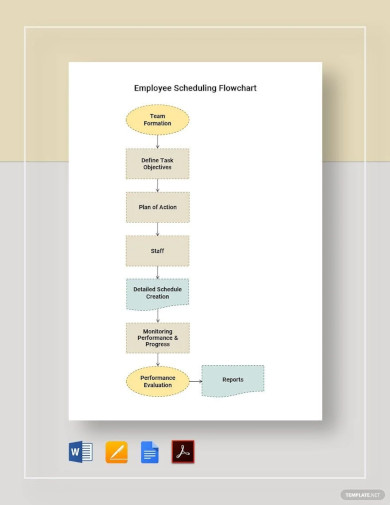
Employee Scheduling Flowchart Template
download now -

Manufacturing Scheduling Gantt Chart Template
download now -
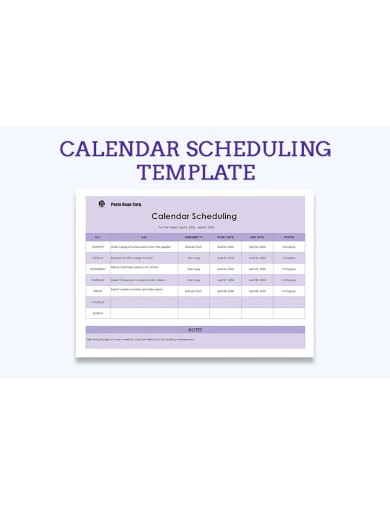
Calendar Scheduling Template
download now -
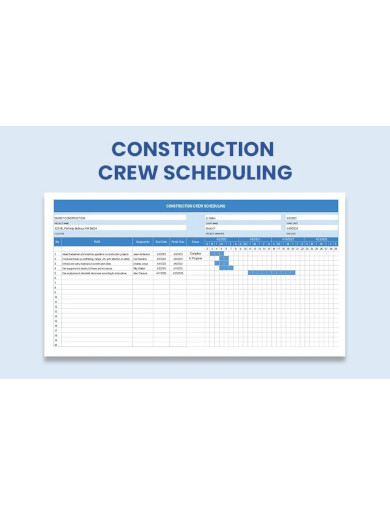
Construction Crew Scheduling
download now -
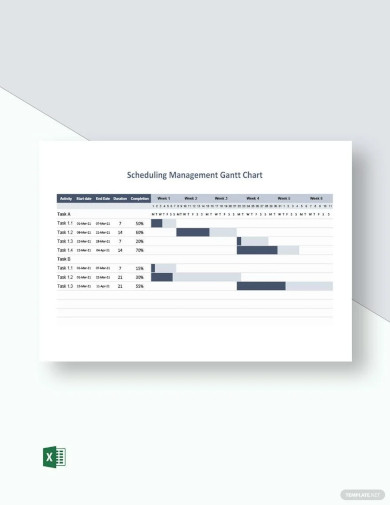
Scheduling Management Gantt Chart Template
download now -
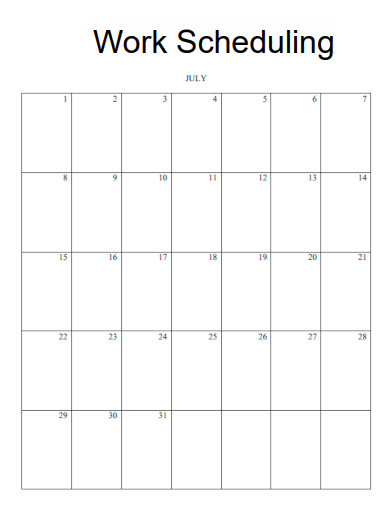
Work scheduling
download now -
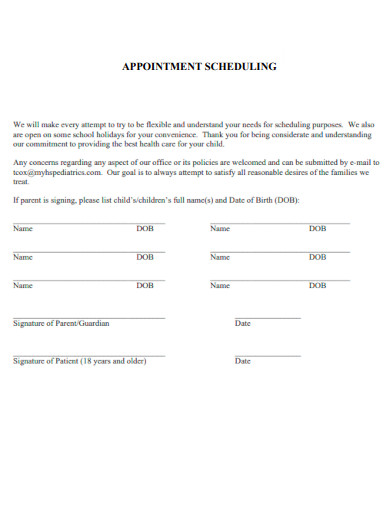
Appointment Scheduling
download now -

Production Scheduling
download now -

Employee Scheduling
download now -
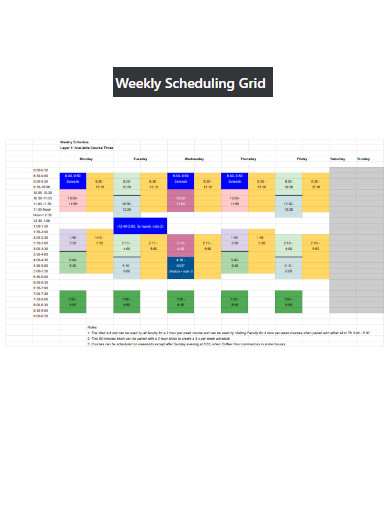
Weekly Scheduling
download now -
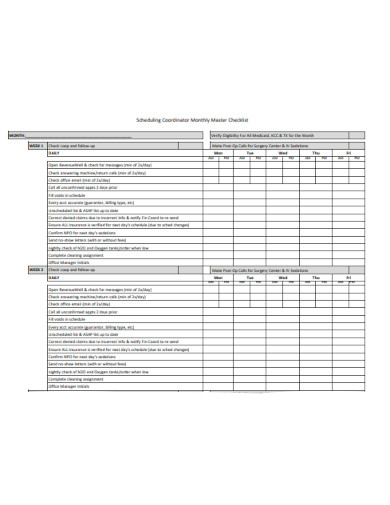
Monthly Scheduling
download now -
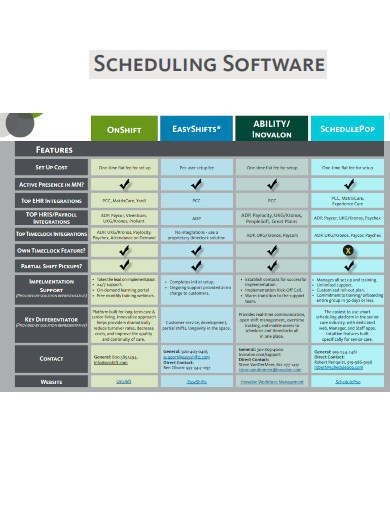
Software Scheduling
download now -
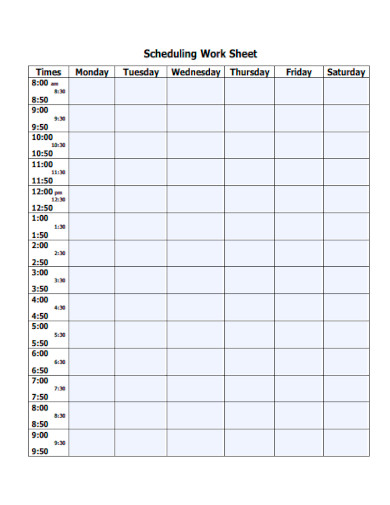
Scheduling Work Time
download now -

Hotel Scheduling
download now -
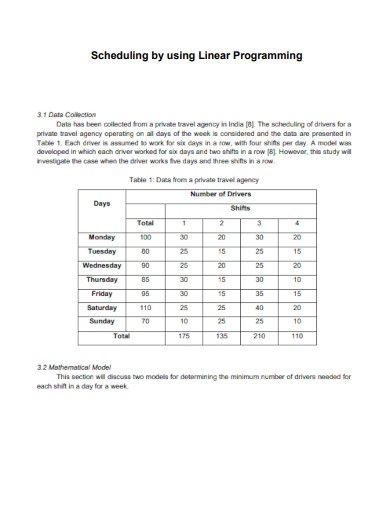
Linear Programming Scheduling
download now -
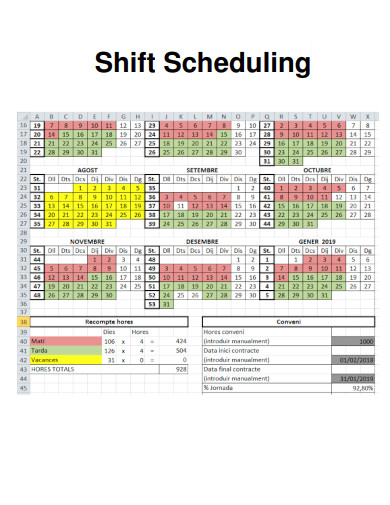
Scheduling Shift
download now -
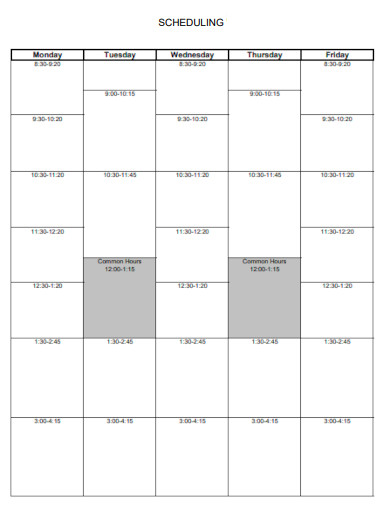
Printable Scheduling
download now -
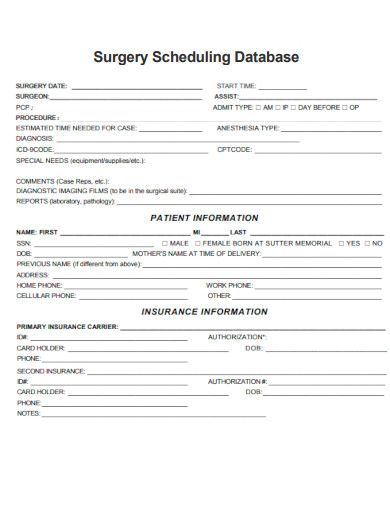
Surgery Scheduling Database
download now -

Scheduling Roster
download now -
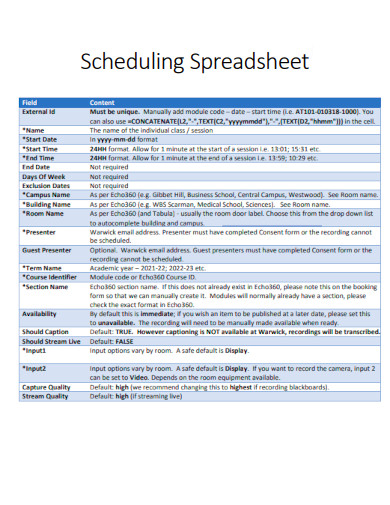
Scheduling Spreadsheet
download now -

Scheduling Gantt Chart
download now -
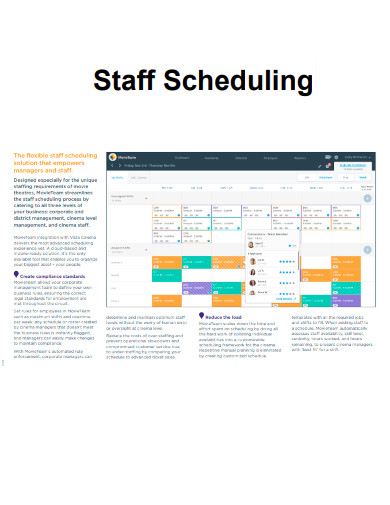
Staff Scheduling
download now -
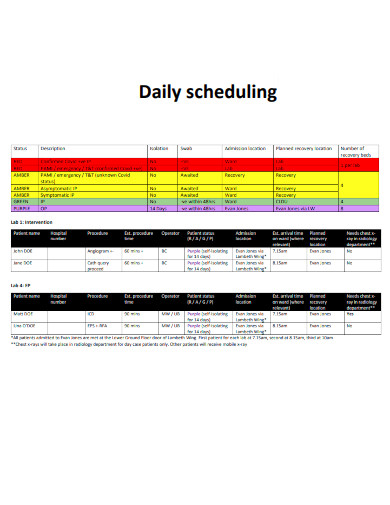
Daily scheduling
download now -
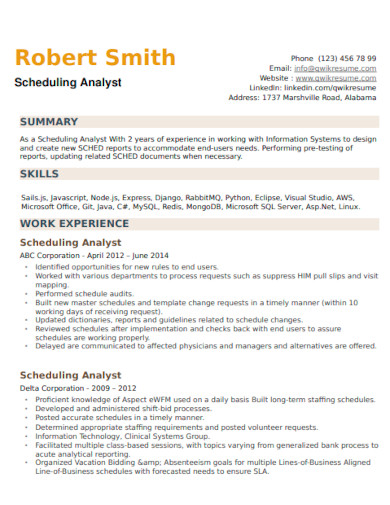
Scheduling Resume
download now -
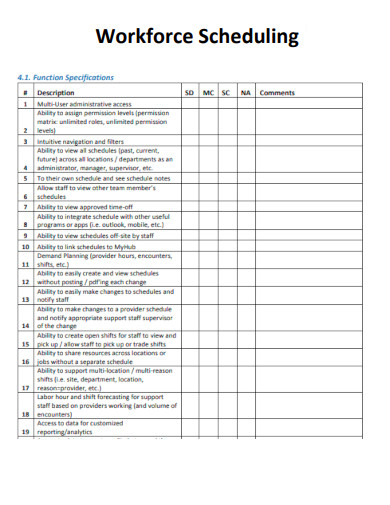
Scheduling in PDF
download now -
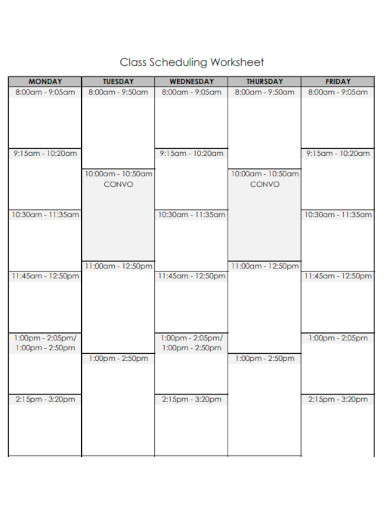
Class Scheduling
download now -
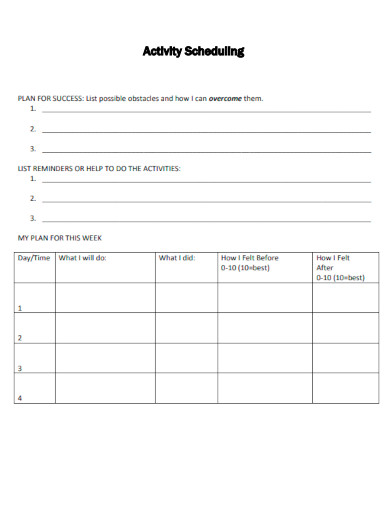
Activity Scheduling
download now -
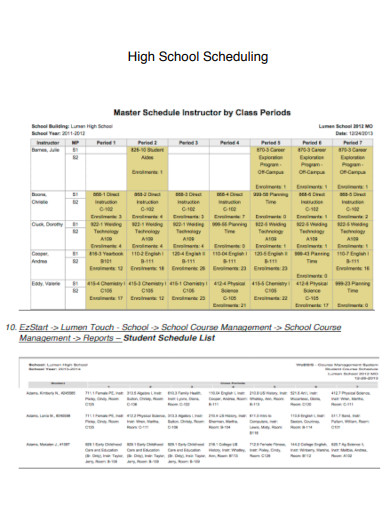
High School Scheduling
download now -
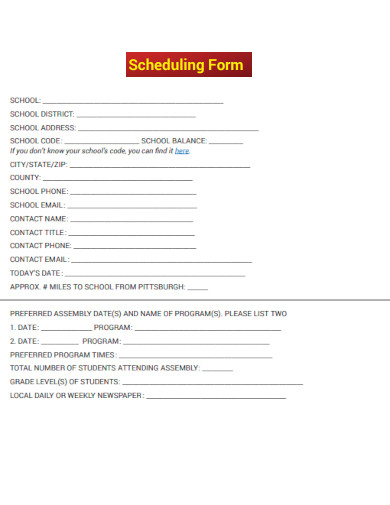
Scheduling Form
download now -
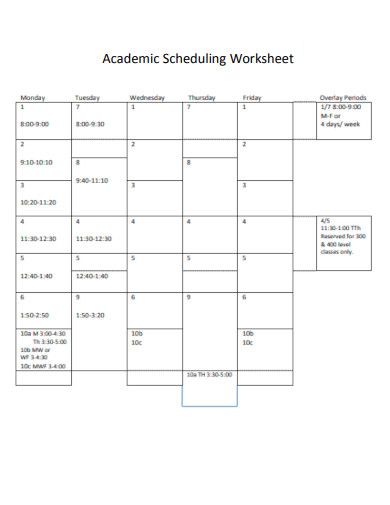
Scheduling Worksheet
download now -
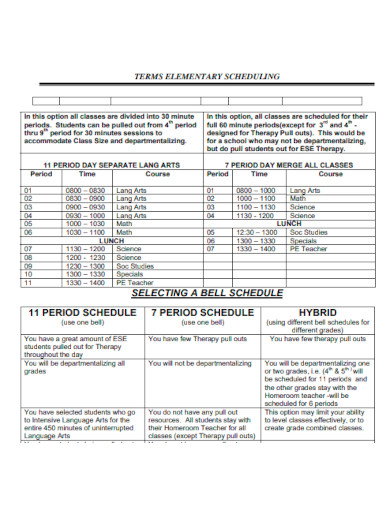
Elementary Scheduling
download now
What Is a Schedule?
A schedule is a systematic and organized plan specifying the timing, sequence, and allocation of activities, duties, or resources over time. It provides a structured framework for managing and coordinating diverse elements to achieve particular goals, objectives, or outcomes. Schedules are utilized in various contexts, ranging from daily duties to complex project management, to ensure that activities are carried out effectively and coordinated.
Benefits of Creating a Weekly Schedule
Whenever we want to accomplish something, we always consider how we can do so. This phase is commonly referred to as preparation. We all can plan, regardless of the nature of our lives or our occupations. Unfortunately, most of us take planning, creating work schedules, and adhering to them for granted. We will always have another day to complete tasks, particularly in employment. But we had no idea that the more we procrastinated, the more entangled we would become in our daily routines, and the more we would lose our life/work balance. Fortunately, it is relatively easy to break the tendency. Everyone has the opportunity to master time management. All we need to do is create a weekly timetable of our responsibilities. Of course, we also need a healthy dose of discipline. The following are the advantages of developing a weekly schedule.
Tips for Using a Daily Schedule
A schedule is a plan for accomplishing work or personal tasks at specified intervals. While creating a schedule can help you organize your time, you must continue to use it to reap the long-term benefits. Creating and sticking to a schedule can assist you in utilizing your time more efficiently. If you are still intrigued, here are some guidelines for using your schedule.
1. Consider Your Levels of Vitality and Output
To be productive at home or work, you must first understand your personality and tendencies. You can plan to complete complex duties when you are most effective. For instance, if you have a task outside your comfort zone, you might complete it during the morning’s productive hours. This will assist you in completing all deadlines and submitting accurate work. Typically, practice is required to identify your most productive hours.
2. Enhance Your Time Management and Sensitivity to Detail
Time management is the ability to make efficient use of time, and attention to detail is the capacity to be meticulous and conscientious at work. Developing and harmonizing these characteristics can help you adhere to and maintain your schedule. You can observe your environment and set limits for each task, for instance, to become more detail-oriented. Recording your ability to adhere to a schedule in a daily journal can help you determine which aspects to enhance or maintain. For instance, if all duties are completed, you can conclude that your defined schedule is adequate. Discussing your plans with a dependable mentor or career coach can also yield valuable insights for development, such as more effective methods for managing distractions.
3. Complete Duties Before Transferring
When you begin a new task before completing the preceding one, this is known as task creep. Preventing it by averting overlapping duties can help you maintain your productivity levels. While learning to multitask can be advantageous, focusing on one task is often more efficient before transitioning to another.
4. Plan For Unexpected Events
Unexpected personal and professional events can occur throughout the day. For instance, you may have a personal emergency or be required to attend an urgent meeting agenda by your supervisor. Increasing your adaptability to and preparing for different situations can help you maintain your daily schedule. In addition, self-reinforcement involves rewarding oneself for appropriate behavior or objective achievement. Creating a reward system can encourage you to adhere to your daily timetable. You can satisfy a personal need to acknowledge your efforts and motivate yourself to continue using a daily schedule, for instance.
How to Create a Work Schedule
In many occupations, managing responsibilities and scheduling employees is essential. Whether new to team management or aspiring to be a manager, having a process to follow is beneficial. Even though technology can aid in scheduling work, numerous factors remain to consider. It is necessary to know how to create work schedules if you are seeking a new position because workload management is part of the job description of many line managers. Here are some methods for creating a schedule that helps teams maintain concentration:
1. Acquaint Yourself With the Personnel
Assess the number of people to be included in the schedule, the number of hours available to distribute among employees, and the number of hours per day that employees are contracted to work. This can help you determine available time before creating a schedule. It is essential to know the average duration of a shift, and it is also helpful to have a list of each employee’s primary responsibilities and goals, as well as a general estimate of how long each task takes. There are various types of employment contracts, including permanent, temporary, full-time, part-time, and zero-hours. Knowing the specifics of each can help you assign work with an understanding of the priorities and any mandatory dates. If uncertain, consult with staff and the HR department.
2. Have a Method for Recording Holidays
Determine how many days per month employees can expect to work and how much annual leave is available. The employee’s number of vacation days can be found in the employment contract. Their contract may already stipulate the amount of notice required for vacation requests and how to make them. When a team member is absent, the dates should be recorded as quickly as possible, and every effort should be made to locate a replacement.
3. Factor in Some Leeway
Even the most carefully crafted employee work schedules require adjustments. Managers accommodate employees’ requests to alter shifts, call in sick, or work overtime as part of their responsibilities. Try to have one or more staff members on “call” each day if required. Also, as a manager, it is simple to forget that you are a team member. However, detailing your days and hours on the schedule is also helpful. Who fills in for you during your days off? With a contingency plan, things can continue to run even when you are absent.
4. Review Often
Finally, regularly examine the schedule. Plan for at least a month to be aware of the available resources, but double-check your rota each week to ensure no last-minute scheduling conflicts or issues. Ensure that employees who work atypical hours or days continue to enjoy doing so.
FAQs
Why is scheduling important for students?
Children, like adults, feel more confident and secure when their daily activities are routine and predictable. Children have a predictable day due to a consistent daily schedule and step-by-step routines. Schedules and routines in group care and at home help children feel in control of their surroundings.
What is the importance of time management?
The advantages of time management are simple. Good time management enables you to accomplish more in less time, which gives you more time freedom, improves your ability to concentrate, makes you more productive, reduces your tension, and gives you more time to spend with the people who matter most.
How planning helps in achieving effectiveness and efficiency?
Developing a firm plan is the key to efficiently and effectively achieving any objective. The road map assists in determining which actions must be taken and in what sequence. Using logical reasoning, you can substantially increase the likelihood of your success through careful planning.
Personal, professional, and organizational benefits are just a few of the many advantages that scheduling provides. While scheduling offers numerous benefits, remaining flexible and adaptable to potential alterations is essential. Life can be unpredictable, so being flexible with your schedule is also advantageous.


